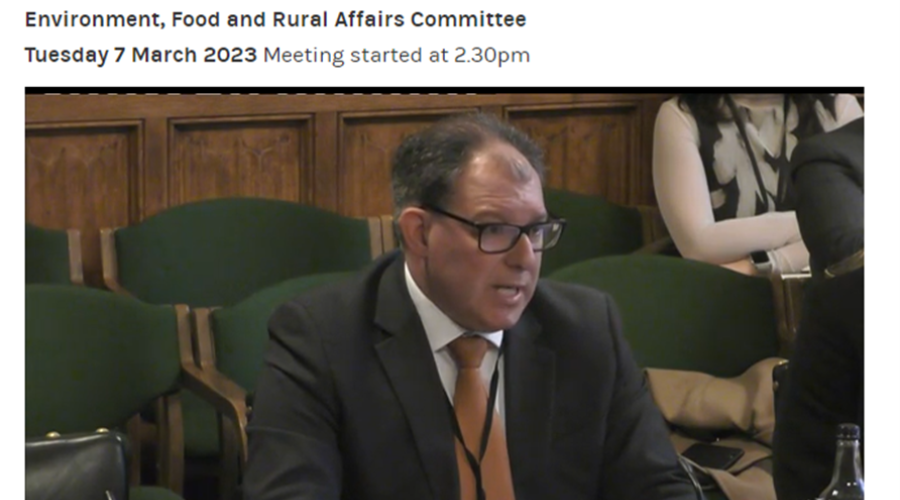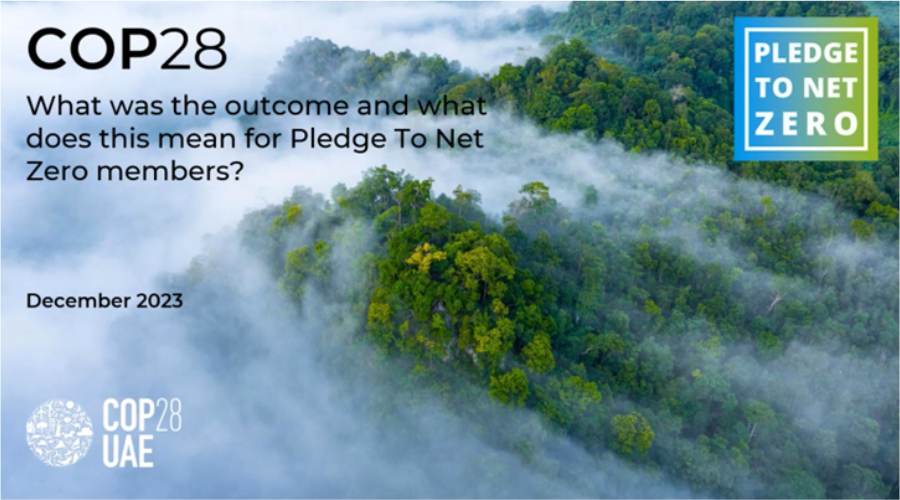With a general election taking place in addition to local elections, 2024 will be a significant year in UK environmental policy. In this blog, our Policy and Communities of Practice Officer Sarah Ridgeon MCIPR, reflects on last year’s developments, as well as setting out our 2024 priorities across three key policy areas: green skills, net zero and soil health.

2023 in review
Throughout 2023 we worked hard to ensure that the voices of our registrants were heard by decision-makers. We proactively wrote letters to Ministers, undertook timely research, and responded to key government consultations. Often, we did so as part of a collective effort – maximising our impact by demonstrating the united voice of the environmental profession across many different sectors and disciplines. Below are just some of the ways we influenced policy in 2023.
Outcomes
- Following on from our influential 2021 Soils and Stones report, we were invited to give oral evidence to the Environment, Food and Rural Affairs Committee (EFRA) Soil Health Inquiry. Demonstrating our impact further still, the inquiry report made a number of references to our evidence and many of our key asks were featured in the inquiry recommendations. Find out more here.
- The COP28 final agreement referred to the need for green skills and training to effectively tackle climate change. This was something that SocEnv and more than 40 other organisations, including IEMA, called for in advance of the summit. Find out more here.
- Proposed amendments to the Levelling-up and Regeneration Bill were scrapped after we and others in the environmental community raised serious concerns. The amendments would have weakened the nutrient neutrality requirements for building new developments. Find out more here.
- After our call to action alongside over 40 other expert bodies, the Government announced the implementation of Schedule 3 of the Flood and Water Management Act 2010, finally mandating sustainable drainage (SuDS) in new developments. Find out more here.
Images, from left to right: our Soils and Stones lead Martin Ballard CEnv giving oral evidence to the Environment, Food and Rural Affairs Committee (EFRA) Soil Health Inquiry and a webinar we chaired analysing the key outcomes from COP28. Click on the images to watch both in full.
Despite these successes, there were also notable frustrations in 2023. We opposed the reversals to key net zero policies, as announced by the Prime Minister in September. Our concerns are outlined in a number of submissions which can be viewed here. While COP28 saw an agreement to transition away from fossil fuels, this stopped short of what is needed: phasing them out altogether (for a full recap on COP28, check out this recording of a webinar we chaired shortly after the summit). And beyond climate policy, there were frustrations in nature policy too, including delay to the implementation of mandatory Biodiversity Net Gain (BNG) until this February.
2024 priorities

1. Strengthen roadmap to net zero – including investing in green skills
A key component of effective delivery is green skills – put simply, we can’t achieve net zero without there being the necessary skills in the workforce to get us there. Throughout 2024, wewill be working alongside partners within our role as Secretariat of the Environmental Policy Forum to call for greater investment in green skills. These actions follow on from our 2023 research which found investment and incentives to be much-needed solutions to the green skills challenge – including funding for high-level training provision and providing greater incentives for people to enter green jobs.
To build our knowledge and maximise our impact in addressing the green skills challenge, we commissioned some further research which is being carried out by our partners Avery and Brown in the first quarter of this year. The research project is focusing on green jobs, specifically technician roles, and their alignment with professional development opportunities.
We await the publication of the green jobs action plan in the Spring, for more on how the government seeks to make the most of the social, economic, and environmental benefits that green jobs provide.

2. Implement soil health recommendations
Firstly, we will be calling on government to implement action to address the vital issue of soil health – including delivering on the EFRA inquiry recommendations. We are aligning the activity of our Chartered Environmentalist led Soils and Stones project to the following inquiry recommendations:
- Soil health to be put on the same footing as water and air quality within government policy.
- Statutory targets on soil health, alongside the existing water and air quality targets, by 2028.
- The introduction, by 2035, of a regulatory framework to focus on preventing soil degradation and contamination across various sectors, including construction and planning, as well as agriculture.
- More comprehensive, consistent, and well-signposted training and guidance are needed to improve land management practices and soil health in several sectors.
Among the ways we will seek to progress these recommendations is engaging with decision-makers. This includes sharing good practice case studies with them to demonstrate how change is being delivered in practice by environmental professionals.

3. Commit to stable, joined-up and evidence-based policy
In this election year, we are calling on all parties to commit to stable, joined-up, evidence-based policy. In 2023 we saw how a series of policy reversals can undermine investment and confidence in delivery. In addition, we have seen increasingly limited scrutiny and consultation with experts, threatening effective policy delivery due to having insufficient input from those delivering policy on the ground.
To rectify these issues, in 2024 we need to see changes such as building stronger links between the Department for Environment, Food and Rural Affairs (Defra) and other government departments. The government’s Code of Practice on Consultation should also always be followed – including allowing sufficient time for stakeholders to respond to consultations.
Get involved
If you are a Chartered Environmentalist (CEnv), Registered Environmental Practitioner (REnvP) or Registered Environmental Technician (REnvTech) and would like to discuss feeding into our policy work, get in touch.
Staying up to date
For the latest policy news and reaction this election year, keep an eye on socenv.org.uk and connect with us via:
Share this page
More from SocEnv

Environmental Policy Forum
The Environmental Policy Forum is a network of UK based professional bodies working in collaboration to influence decision-makers.


Environmental Policy Forum issues letter to PM re attack on nature
The Environmental Policy Forum (EPF) has issued an open letter, summarising our deep concerns regarding recent Government announcements.


Statement regarding UK green policy announcement (September 2023)
We express deep concerns regarding the green policy announcements made by the Prime Minister on the 20th September 2023.


IES and EPUK’s new joint focus on the implementation of environmental policy
Introducing EPIC: the new Environmental Policy Implementation Community



